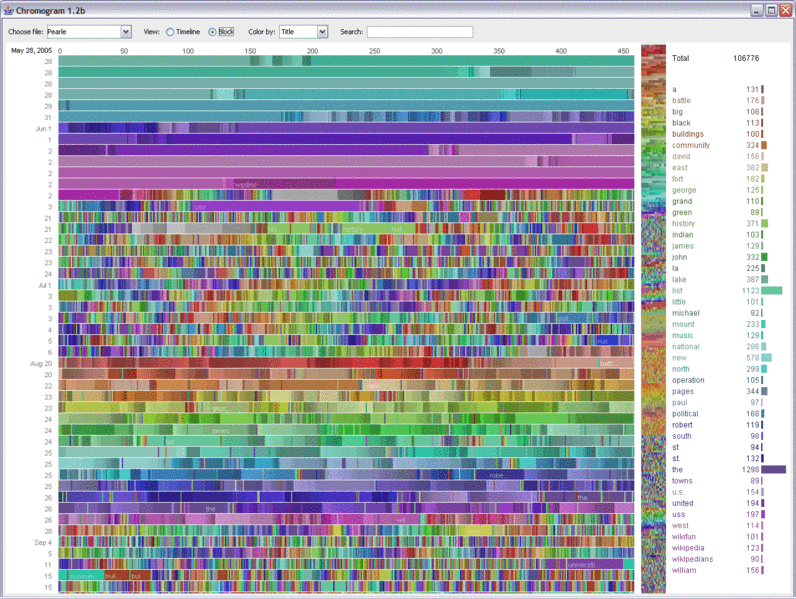I love the new term ‘big data’. Here’s a picture of some ‘big data’.
Viegas-UserActivityonWikipedia.gif
I have an idea what ‘big data’ is, but haven’t really delved into a definitive explanation. I’m not sure that I want to, as I want to keep my own ideas about ‘big data’ virginal and uncluttered by truth and reality – kind of like imagining what the edge of the universe looks like.
Not to be left out of the ‘big data’ revolution, I thought I would share some ‘big sleeping data’. There’s no particular rhyme or reason to the order or sequence of the data – they are just BIG.
- In a 1969 study of 14 couples, the researcher, L J Monroe, found that sleeping alone reduces the number of awakenings of each partner by 60%.
- 33% of nocturnal awakenings are shared by bed partners.
- In 2009 The New York Times cited a survey of builders and architects, which predicted that by 2015, 60% of custom-built houses will have two master bedrooms.
- In Japan as many as 70% of couples do not sleep together once they have a child
- The American Sleep Foundation found that more than half the women they surveyed, ages 18 to 64, said they slept well only a few nights a week because of sharing a bed and of these, 43% believed their lack of sleep interfered with their ability to deal with the next day’s activities.
- A sleep study in 1984 revealed that people who averaged six hours of sleep per night were 27% more likely to be overweight than those who got seven to nine hours. And those who averaged only five hours of sleep per night were 73% more likely to be overweight.
- A 2012 study by the Central Queensland University found a partner in your bed is more disruptive to sleep than any other noise. 57.6% of respondents indicated that they slept with a partner, and of these, 34.5% indicated that their partner disturbed them whilst getting into bed. 44% stated that their partner disturbed them tossing and turning, and 58.8% said that their partner’s snoring disturbed their sleep. 48.4% said their partner disturbed them by getting up to go to the bathroom at night and 10.1% reported that their sleep was disturbed by their partner getting up to go to the kitchen. 8.1% of respondents were disturbed by their partner answering phone calls and 35.9% had been disturbed by their partner getting up to go to work.
(Now that there is some BIG data)
A National Sleep Foundation Poll (America) 2005 found that:
- When one spouse has a sleep problem, 75% of other spouses ends up with sleep problems, too.
- If a spouse snores, the other spouse loses an average of 49 minutes of sleep each night.
- More than one third of people with sleep issues say the issues caused problems in their relationship.
- One quarter of spouses admitted that their sexual relationship had been affected by sleep issues.
- 23% of couples experiencing sleep problems end up in separate beds anyway
I may not have provided quite enough data to create a psychadelic, multi-coloured graph worthy of display on Wikipedia, but I think there are enough numbers there to create a compelling case for slipping solo between the bed sheets.
It’s a BIG decision to do it, but there are some BIG health and relationship rewards for those who are BIG enough to take the leap and sleep separately.
